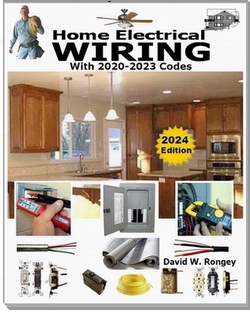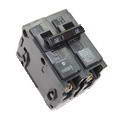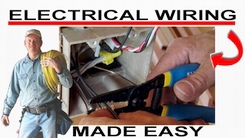More about Wiring a Sub Panel
Learn more about wiring a sub panel |
» Circuit Breakers and Fuses
» Need Electrical Help? Ask the Electrician
How to Install and Wire a Sub-Panel
 |
By Dave Rongey
Summary: Electrical Sub-Panel wiring considerations for the home complete with pictures. Careful planning for your Sub-Panel with immediate and future load considerations will help you understand how to size your Sub-Panel. This information will help as you consider a Sub-Panel and its size. © By: Dave Rongey |
How to Install and Wire a Sub-Panel the Right Way
Make a List of all the things you plan to use
120 volt devices
Lighting
Electrical Convenience Outlets
GFCI Protected Outlets
240 volt equipment
Motor Loads:
Hot Tubs [see the Hot Tub Page]
Well Pumps
Air Conditioners
Sub-Panel Considerations-
Correct amperage for all existing loads and future requirements.
Considerations to help determine Sub-Panel Circuit Requirements:
Important Factor: Find out if the Main Service or the Panel that will supply the Sub-Panel Circuit have adequate Load Capacity and space for the needed circuit breaker.
How big should your Sub-Panel be ? (Watts and Amperage)
This will help you consider the circuits to be served by the Sub-Panel including general purpose electrical outlets and any special equipment which will be needed.
Special Considerations:
Large 220 Volt Loads such as Welders, Air Conditioners, Motors, Well Pumps and the like may require larger size wire and conduit to provide the necessary current this equipment requires. Be sure to list all the label requirements and manufacturers specifications.
Long Distances from the power source will produce Voltage Drop, especially over 175 feet. A 2% Voltage drop factor and correction will most likely require an increased size of the wire and conduit.
Wire Types and Capacities
Cables and common wire types
Devices and Junction Boxes
Select the right box for your application
120/240 Volt Sub-Panel Circuit Requirements
4-Wire System consisting of:
2-Insulated Power Conductors (Black & Red)
1-Insulated Neutral Conductor (White)
1-Ground Conductor (Bare or Green)
Don't Make This Mistake!
[click pictures to enlarge]
|














